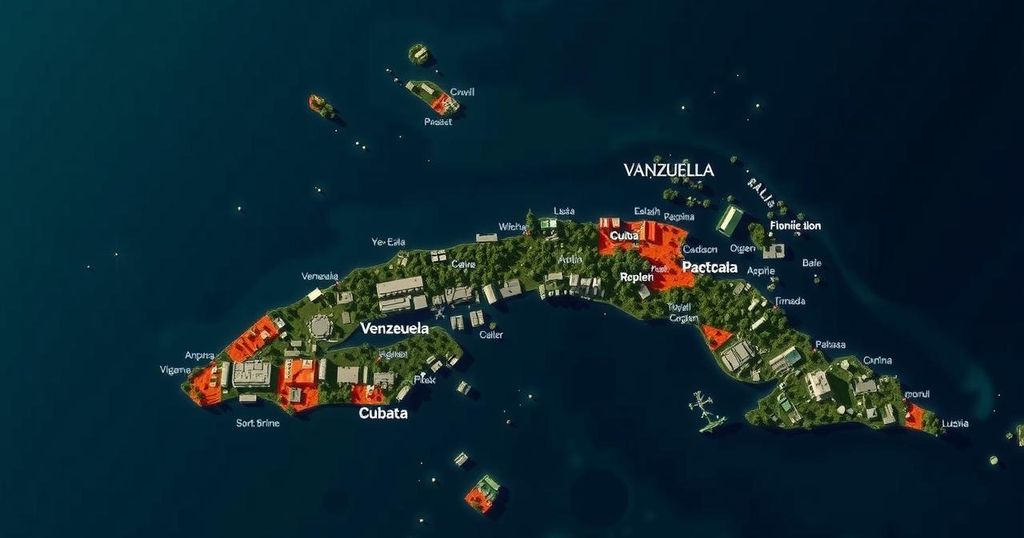Alexei Zhuravlev, a Russian legislator, has suggested the Kremlin consider deploying missiles in Cuba and Venezuela as a response to U.S. support for Ukraine. His proposals echo Cold War strategies and reflect a shift in Russian military posture. Other lawmakers support these ideas, indicating a broader commitment to militarizing these regional allies amid increasing tensions with the West. The developments could signal a significant escalation in the current geopolitical landscape.
In recent developments, Alexei Zhuravlev, a prominent member of the Russian Defense Committee, has suggested the potential deployment of Russian missiles in Cuba and Venezuela as a retaliatory measure against U.S. support for Ukraine amid the ongoing conflict. Zhuravlev’s proposal, described as a means to “attack the United States,” aligns with his views on the necessity of sending a stark message to Ukraine’s allies, asserting that military responses are essential as Moscow seeks to advance its agenda in Ukraine. He emphasized the parallels between current geopolitical tensions and the historical context of the 1962 Cuban Missile Crisis, advocating for similar military strategies to confront Western interventions. Moreover, this sentiment is echoed by other Russian legislators, indicating a collective inclination towards escalating military posturing in the region.
Zhuravlev’s comments arrive in the wake of enhanced U.S. military assistance to Ukraine, including long-range tactical missiles, prompting Russia to revise its military doctrine to include nuclear options for safeguarding its sovereignty. The Russian administration has not only sought to strengthen its alliances with nations like Cuba and Venezuela but has also engaged in military exchanges, enhancing its presence in the Caribbean with naval deployments carrying advanced weaponry. These maneuvers underscore the Kremlin’s strategic intent to reestablish connections reminiscent of the Soviet era, navigating the complexities of contemporary international relations with an urgency to assert itself against perceived Western aggression.
The discussions surrounding Russia’s potential missile installations in Cuba and Venezuela emerge from the broader context of geopolitical tensions exacerbated by the ongoing conflict in Ukraine. This situation reflects historical echoes of the Cold War era, particularly the 1962 Cuban Missile Crisis, when U.S.-Soviet relations reached a peak of confrontation. In present times, Russia’s military strategies are resurfacing as a response to Western military aid to Ukraine, highlighting a volatile landscape where international relations are intricately interwoven with historical precedence, military alliances, and territorial sovereignty concerns. The backdrop of Russian naval deployments and military exchanges with Cuba underscores a revival of strategic partnerships that previously defined U.S.-Soviet relations, setting the stage for potential escalations that could resonate across the globe.
In conclusion, the proposition of deploying Russian missiles in Cuba and Venezuela reflects a significant escalation in rhetoric and military strategy reminiscent of Cold War tensions. Legislators like Alexei Zhuravlev are advocating for a forceful response to Western interventions, particularly in light of U.S. support for Ukraine. This proposed action not only underscores Russia’s intent to convey its displeasure but also signifies a potential shift in military posturing that could have profound implications for international security and diplomatic relations. The situation remains dynamic and necessitates vigilant observation from global leaders.
Original Source: havanatimes.org






